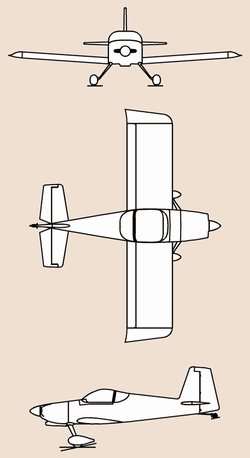FAA Spokesman Has A Lot To Say About Union's "Melodramatic
Rhetoric"
In the ongoing war of words between the Federal Aviation
Administration and the National Air Traffic Controllers
Association, it's sometimes difficult to tell where to separate the
wheat from the chaff, as it were. Over the past year-and-a-half
that controllers have worked under a contract imposed upon them by
the FAA, the union has stepped up its efforts to portray the agency
as disconnected -- even bumbling -- and uncaring about the needs of
its controllers.

But none of that compares to what NATCA had to say Friday. In a
release to numerous media outlets, including ANN, the union
insinuated the actions of an FAA supervisor may have interfered
with controllers' efforts to hear a pilot's "Mayday" call in
Northern California.
According to NATCA, air traffic controllers at Oakland Air Route
Traffic Control Center (ZOA) last Sunday were prevented from
monitoring the distress calls from a small plane in trouble,
because their FAA supervisor turned down the volume of the
facility’s emergency frequency and loudspeaker to an
inaudible level.
 The RV-7 crashed at
approximately 1650 PST, on private property between Highway 20 and
Banner Mountain, near Nevada City, CA northeast of Sacramento. The
pilot and sole occupant onboard the plane was killed.
The RV-7 crashed at
approximately 1650 PST, on private property between Highway 20 and
Banner Mountain, near Nevada City, CA northeast of Sacramento. The
pilot and sole occupant onboard the plane was killed.
NATCA states that before the crash, a "Mayday" call came over
the "Guard" emergency frequency at Oakland Center, which monitors
and controls airspace above all of Northern California. The Mayday
was followed by other emergency-related transmissions -- also
broadcast on a loudspeakers inside the facility -- regarding a
plane "going down over Grass Valley."
Three controllers began listening in an attempt to understand
the call signs involved. Then, according to one of the controllers,
the supervisor came over and turned the loudspeakers down to an
inaudible level, stating "I do not want my controllers
distracted."
NATCA says controllers responded it was their responsibility to
always monitor the frequency, and they were trying to hear the call
signs in order to eliminate the possibility that the aircraft was
one in which these controllers had under their immediate
control.
In fact, the union adds, controllers are given annual refresher
training to insure they follow proper procedures in just such an
event.
"There is absolutely no justification for the supervisor to turn
down the Guard channel. This frequency is required to be
continuously monitored at every FAA air traffic facility and area,"
NATCA Oakland Center Facility Representative Scott Conde said.
"This is to ensure coverage and allow controllers to try and gather
information on aircraft in distress. Controllers can pinpoint
locations and relay information to emergency services. This can
dramatically reduce the time that it takes to get assistance to the
downed aircraft."
Conde added it is an FAA order that these frequencies be
continuously monitored and tested for service. In any normal
circumstance, he said, it would be highly inappropriate for any
employee of the FAA to turn off the "Guard" channel -- and called
the supervisor's reported actions "completely unconscionable."
That accusation definitely got the media's attention... and Ian
Gregor, the FAA's Western Region spokesman, says that was precisely
the union's intent.
"This is yet another example of the controller union leaders
making unsubstantiated claims in their ongoing attempt to attack
FAA management because they’re unhappy with a labor contract
that we put in place a year and a half ago," Gregor told ANN.
"Indeed, NATCA's national president, Pat Forrey, admitted to
reporters several weeks ago that the reason the union is attacking
the FAA is to force us to reopen contract negotiations.
"In this case, as usual, the facts do not support the
union’s melodramatic rhetoric," he pointedly added.
According to Gregor, ZOA wasn't handling the aircraft in
distress -- and the pilot wasn't calling Oakland Center for help.
Furthermore, Gregor says, "[t]he supervisor could tell from the
communications that the pilot who was in distress had already
reported his problem to another facility. The pilot had reported it
to a flight service station in Rancho Murietta. Another pilot
reported over the emergency frequency that he saw the plane in
distress had already hit the ground. This pilot was circling over
the scene to make sure emergency crews would respond."
Gregor also states controllers had the volume on the emergency
frequency "very high," and the supervisor was concerned -- as the
union acknowledges -- the transmissions were distracting the
controllers from handling their immediate responsibilities. One
controller was handling 11 aircraft at the time, Gregor noted.

"If the controllers were distracted, they could have allowed
aircraft to get too close together," Gregor said. "It seems
reasonable to me that the supervisor wanted to make sure that the
controllers were doing their job and not being distracted by a
situation that was beyond their control.
"The supervisor’s decision to turn down the volume had no
affect whatsoever on the tragic outcome," the FAA spokesman
concludes.
 ANN's Daily Aero-Linx (04.16.24)
ANN's Daily Aero-Linx (04.16.24) Aero-News: Quote of the Day (04.16.24)
Aero-News: Quote of the Day (04.16.24) Airborne 04.10.24: SnF24!, A50 Heritage Reveal, HeliCycle!, Montaer MC-01
Airborne 04.10.24: SnF24!, A50 Heritage Reveal, HeliCycle!, Montaer MC-01 Airborne 04.12.24: SnF24!, G100UL Is Here, Holy Micro, Plane Tags
Airborne 04.12.24: SnF24!, G100UL Is Here, Holy Micro, Plane Tags Airborne-Flight Training 04.17.24: Feds Need Controllers, Spirit Delay, Redbird
Airborne-Flight Training 04.17.24: Feds Need Controllers, Spirit Delay, Redbird





